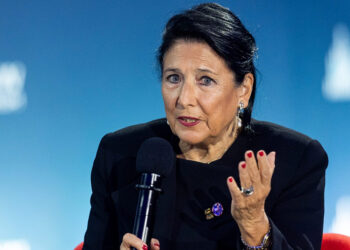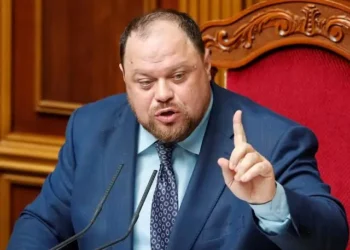Sovereignty and independence are not synonymous political notions, although they have a fairly equivalent dogmatic sound. Compared to independence as such, sovereignty ostensibly sounds more compact and appreciable in terms of political standing, but national independence has bigger weight as a moral political value. Considering these two terms from the viewpoint of lawful statehood, sovereignty, including all its formally documented pillars and its heraldic attributes, is transferable from generation to generation as a legal right to possess supreme authority for making overseeing decisions, which is a significant asset in a nation’s possession. Meanwhile, independence means the freedom of a given country from the rule of another nation, which could be a matter of genuine national pride. At the same time, paradoxically, a nation having acquired official sovereignty and international recognition might have to go another mile or two to become a de-facto independent state.
Sakartvelo is a sovereign country with a certain amount of independence in expectation of fulltime independence, if this is possible at all in today’s world of unknown-before interdependence between the nations. We are caught between the anvil and the hammer: The world is nowadays operating via tens of various military and economic blocs, and if we want to be completely independent, we should eschew initiation into one of those blocs because membership would mean dependence on rules and regulations that the selected bloc suggests we observe. On the other hand, without membership in some of those blocs, associations or international organizations, we can’t survive, because in our globalized world, all human activities are so tightly intertwined that avoiding club-life might be equal to national suicide.
Does this mean that we have found ourselves at a loss? No, not necessarily! Sakartvelo, as a contemporary sovereign country, is faced with a variety of opportunities to create a qualitative standard of living for its people by means of fruitful cooperation with the rest of the nations around the globe, and that cooperation can only take place via interaction with other nations, which is facilitated by the blocs they want to be members of.
How to be a bloc member and an independent nation at the same time? No nation is absolutely independent from others, and the probable adverse or favorable settings thereof, but some countries, being members of some of those clubs, try and often succeed in maintaining both their state sovereignty and national independence, simultaneously serving their national interests and catering to international exigencies.
This would be an ideal version of bringing about Georgia’s genuine statehood, but it might not be very easy to accomplish. Why? Because, firstly, we are a former soviet republic with little experience in capitalist and democratic ways of life, still using lots of social and political leftovers from those bygone times. Secondly, we have deeply and precipitously plunged into a new style of political life, notably determined by the NGO sector, which we haven’t so far gotten the complete hang of. Thirdly, our economic status is still qualified as that of a developing country, which in the first place needs to feed and clad its people, and only after that think about lofty ideals of full-blown democracy and unaffected independence. Fourthly and lastly, we are still working on our modern civil consciousness, which is still raw in this country and needs a lot to be shaped into pure western standards, but without losing our millennia-old national identity.
Honestly and relentlessly striving for identity, sovereignty and independence should desirably be the obligation of every citizen of this country, doing that without the slightest breach of the accepted rules of international play, feeling the shades and intricacies of the ongoing complicated game, doing this with complete sense of recognition of the well-known maxim that we may have no friends, no enemies, but only interests. We definitely have our own interests, based on the idea of our statehood and bringing those interests to realization only through goodwill, sharp brain and knowledge of the global political environment, not accepting external dictates, but not refusing either from a good piece of advice if one is available. Bottom line? This nation’s doubtless survival without losing its overall sense of identity, happiness and objectivity. Nothing impossible!
Op-Ed by Nugzar B Ruhadze














